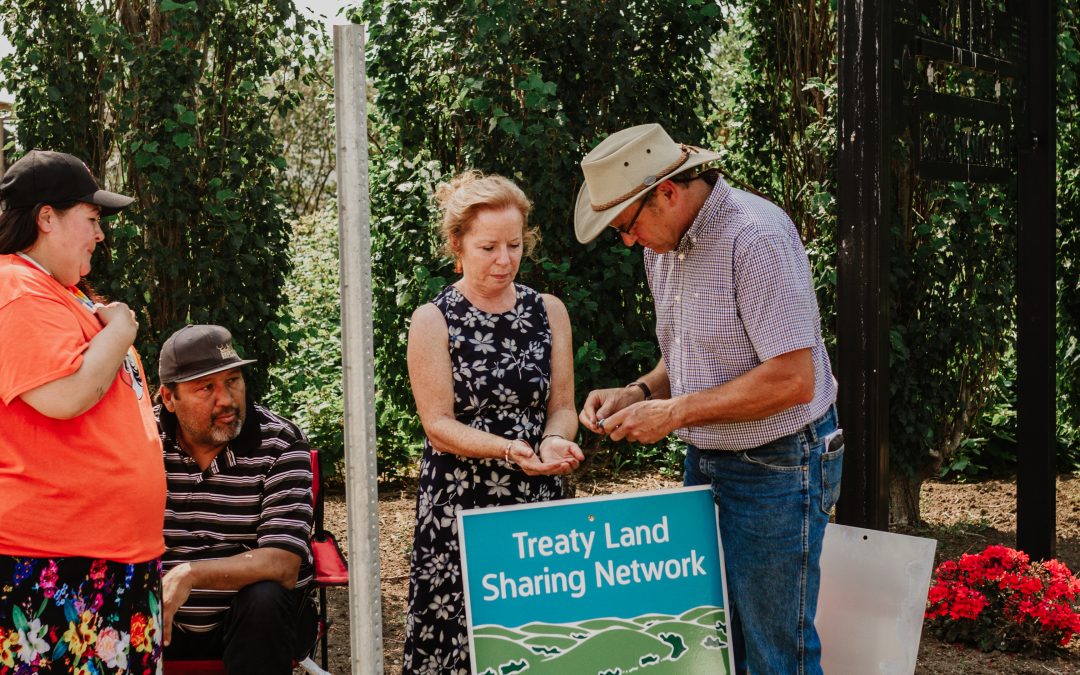The Treaty Land Sharing Network, a network of farmers and ranchers who will give Indigenous people access to their titled land, was launched Thursday.
It will allow traditional land users to go on the farms for gathering, hunting, ceremony and other uses.
Mary Smillie, one of the farmers on the Network’s coordinating committee, said the purpose of the group is to follow the agreed upon conditions in treaties.
“Within Treaty agreements, farmers are free to use the land, earn a livelihood from it and maintain their way of life, but land title does not entail ‘ownership’ as we think of it, or the authority to exclude Indigenous people,” she said. “Farmers have the right to farm, but land was always meant to be shared.”
The Network has about 20 farmers so far, but Smillie said she thinks the number will grow significantly.
She said she’s only gotten positive feedback from other farmers so far, once she’s started the conversation on what systemic racism is.
“It’s a system that causes us (settlers) to have some habits of thinking, communicating or decision making, (and) once we are aware of those habits and we realize that those are just habits—they’re not based on anything that’s our lived experience—we can develop new habits and new habits are going to be required,” she said. “New habits like sharing the land, they’re easier than we think.”
Smillie said the Network was created after Gerald Stanley was acquitted in the shooting death of Colten Boushie.
Members of the Network were joined by Treaty 4 and Treaty 6 traditional land users, the office of the Treaty Commissioner, the Anishnabek Nation Treaty Authority and the Federation of Sovereign Indigenous Nations on a farm near Davidson, Sask. to launch the initiative.
Smillie said the initiative is focused on Treaty 4 and Treaty 6 now, but she’d like to see similar networks created throughout Canada.
(PHOTO: The Treaty Land Sharing Network was launched on a farm near Davidson, Sask. Thursday. Photo courtesy of Valerie Zink.)
